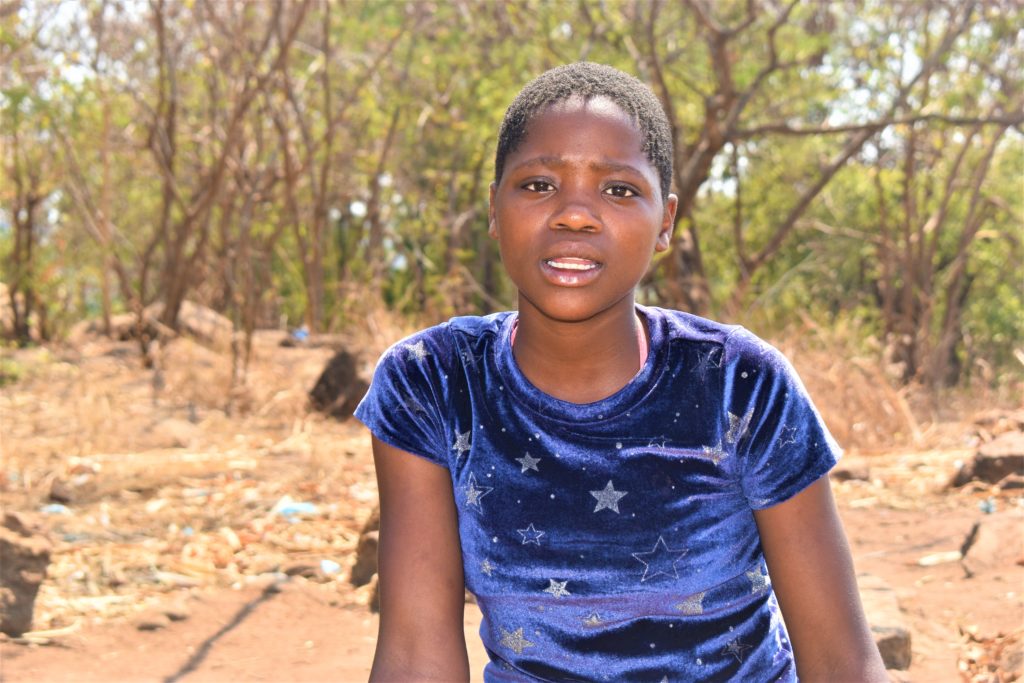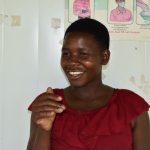“Knowing my HIV status changed my life”- Story of Rebecca from Zomba, Malawi
For three years, 15-year-old Rebecca from Zomba in Malawi was afraid to get tested for HIV. Rebecca never had sex in her life. Her fears emanated from childhood interactions with friends as they shared sharp materials such as razor blades and other piercing objects. As such, Rebecca believed she had contracted HIV and hence the fear of getting tested.
“When we were young, we used to share sharp objects like razor blades. These objects would hurt us, and we bled most often. This happened when I was not aware of HIV and how it is transmitted,” narrates Rebecca.
Rebecca became fully aware of HIV in 2018 after she had joined the Tikondane Club established in Traditional Authority of Mwambo in Zomba district and is co-located with Matawale Health Centre. Tikondane Club is one of the clubs under the DREAMS (Determined, Resilient, Empowered, AIDS-free, Mentored, and Safe girls and women) initiative which is a public-private partnership supported by the U.S. President’s Emergency Plan for AIDS Relief (PEPFAR) focusing on HIV prevention among Adolescent Girls and Young Women (AGYW) through evidence-based interventions shown to successfully address risk behaviors for HIV transmission and gender-based violence.
From the club, she learnt how HIV is contracted, how the virus is spread, its treatment and prevention measures, as well as the benefits of knowing one’s HIV status. However, Rebecca admits she was still too afraid to get tested even after learning more about HIV because she convinced herself that she got the virus through the sharp objects she shared with her friends.
“I always felt like I had HIV and each time I fell sick I would think, it’s HIV. This affected me to the extent that I was not paying attention to my studies,” she explains.
One day, after being convinced by her club’s facilitator and peers from the club, she decided that she couldn’t live like this anymore and she went to Namikate Primary School where the Expanding Malawi HIV/AIDS Prevention with Local Organizations Working for an Effective Epidemic Response (EMPOWER) project team were offering HIV testing and SRH services as part of their mobile clinical outreaches. At the site, she was welcomed by the project’s service delivery team who screened and tested her for HIV.

“The 20 minutes I spent waiting for the results was the longest period of my life. A nurse did some counselling before giving me my results. I couldn’t’ believe it when the nurse said, ‘you are HIV negative’. I was very happy that all the worrying was over. Since then, I have always been careful, so I do not get HIV through any way.” She narrates.
Rebecca admits getting tested was the greatest thing she did for herself because her entire lifestyle changed after that. She says knowing that she does not have HIV has motivated her to put more effort on her education, and she will strive to stay HIV negative.
“Even when I get a boyfriend in future, I will make sure we go for HIV testing, and we will always practice safe sex,” says Rebecca.
Since the day she got tested, Rebecca has been encouraging her peers to get tested so their fears should not control them.
“I always encourage my friends to get tested so they can know how to manage their health, be it an HIV negative or positive lifestyle,” says Rebecca.
Rebecca is one of the many young AGYW who benefitted from the HIV testing services offered by the Malawi EMPOWER project. The project is being implemented in Zomba and Machinga districts of Malawi – with promising results. As of July 2021, it had provided HIV testing services to a total of 15,634 AGYW after risk assessments, out of which 193 individuals were found HIV positive and were referred for treatment.
Malawi EMPOWER is a is a five-year (5th March 2020 to 4th March 2025) USAID funded Project implemented by a consortium of FHI 360 (lead) and two local organizations, Christian Health Association of Malawi (CHAM) and Pakachere Institute for Health and Development Communication (Pakachere). The Project goal is to support the Government of Malawi’s commitment to epidemic control by stopping HIV transmission and preventing new HIV infections among AGYW (10–24 years of age) towards achieving the UNAIDS 95-95-95 goals by 2030.

 Previous Post
Previous Post Next Post
Next Post